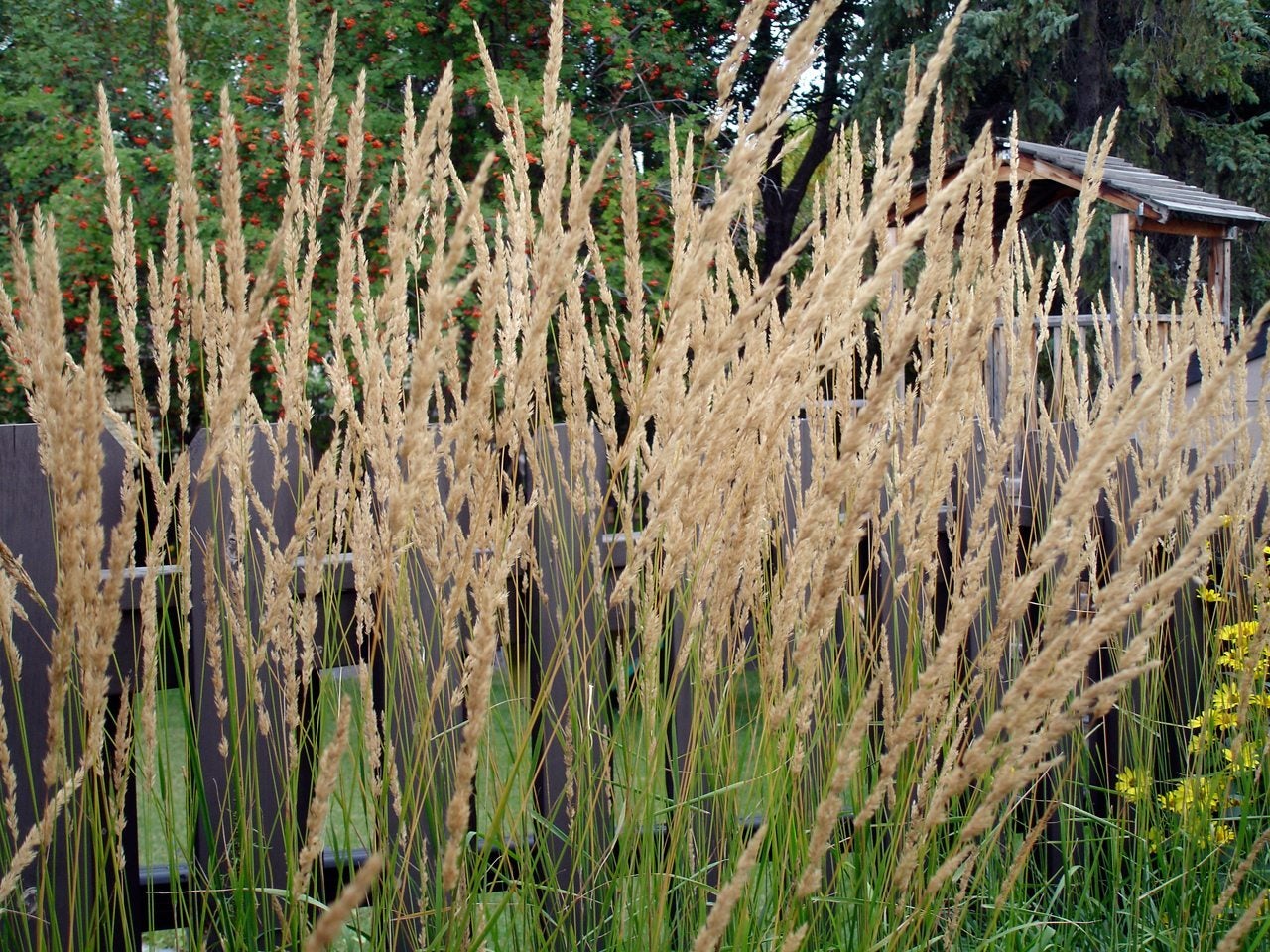Karl Foerster Feather Grass Info – Tips For Growing Karl Foerster Grass


Sign up for the Gardening Know How newsletter today and receive a free copy of our e-book "How to Grow Delicious Tomatoes".
You are now subscribed
Your newsletter sign-up was successful
Ornamental grasses are outstanding plants for the garden. Not only do they have statuesque elegance, but they provide a gentle symphony of wind-driven sound. Karl Foerster grass plants have these attributes as well as the ability to tolerate many soil types and lighting conditions. Growing Karl Foerster grass in your landscape gives you nonstop enjoyment year after year in your garden.
Karl Foerster Feather Grass Info
One of the big landscaping trends for the last decade has been the use of easy-care ornamental grasses. Karl Foerster feather reed grass (Calmagrostis x acutiflora 'Karl Foerster') is an excellent specimen around ponds, water gardens, and other moisture-laden sites.
It is hardy throughout the USDA zones 5 to 9 and has no serious pest or disease problems. Some tips on how to grow Foerster feather grass will have you on your way to enjoying this versatile plant in your garden. Named after Karl Foerster, a lifelong nurseryman, writer, and photographer, this feather reed grass grows 5 to 6 feet (1.5-2 m.) tall.
The grass has three distinct seasons of interest. In spring, new sturdy, lance-shaped leaf blades emerge. During the summer, the feathery, pinkish inflorescences develop. The flowering tips of the stem bear numerous seemingly braided seeds.
These will last all the way into winter, drying out and becoming tan. Spent flower spikes provide one of the few vertical winter decorations in the garden or can be used in dried flower arrangements.
Uses for Karl Foerster Grass Plants
Feather grass needs consistent moisture and is considered a cool-season grass. It can be used in containers or in-ground installations. In a mass planting with accent perennial flowers, the effect is quite surreal and dreamy. As a stand-alone specimen, the grass adds vertical appeal.
Use Karl Foerster as a border, backdrop, living screen, in a wildflower meadow, or around any water structure. It will even thrive in a rain garden. Try using it in a naturalized setting where the grass can accent native plants.
Sign up for the Gardening Know How newsletter today and receive a free copy of our e-book "How to Grow Delicious Tomatoes".
The plant spreads by rhizomes and can become wider over time, but it is not considered invasive and will not self-seed.
How to Grow Foerster Feather Grass
Select a site that is low and collects water or plant the grass near a pond or another moist location. You may also try growing Karl Foerster grass in low moisture areas but provide supplemental irrigation. This is a tough plant that can even thrive in tough clay soil.
Karl Foerster feather grass can grow in either partial or full sun. Divide plants every three years in spring for the best appearance. Leave the flower heads on for winter interest and cut them back in early spring to 6 inches (15 cm.) from the ground.
Fertilizer is not necessary, provided a nice, organic mulch is used around the root zone. In cooler climates, spread straw or mulch around the plant and pull away in spring for the new green leaves to emerge.

Bonnie Grant is a professional landscaper with a Certification in Urban Gardening. She has been gardening and writing for 15 years. A former professional chef, she has a passion for edible landscaping.